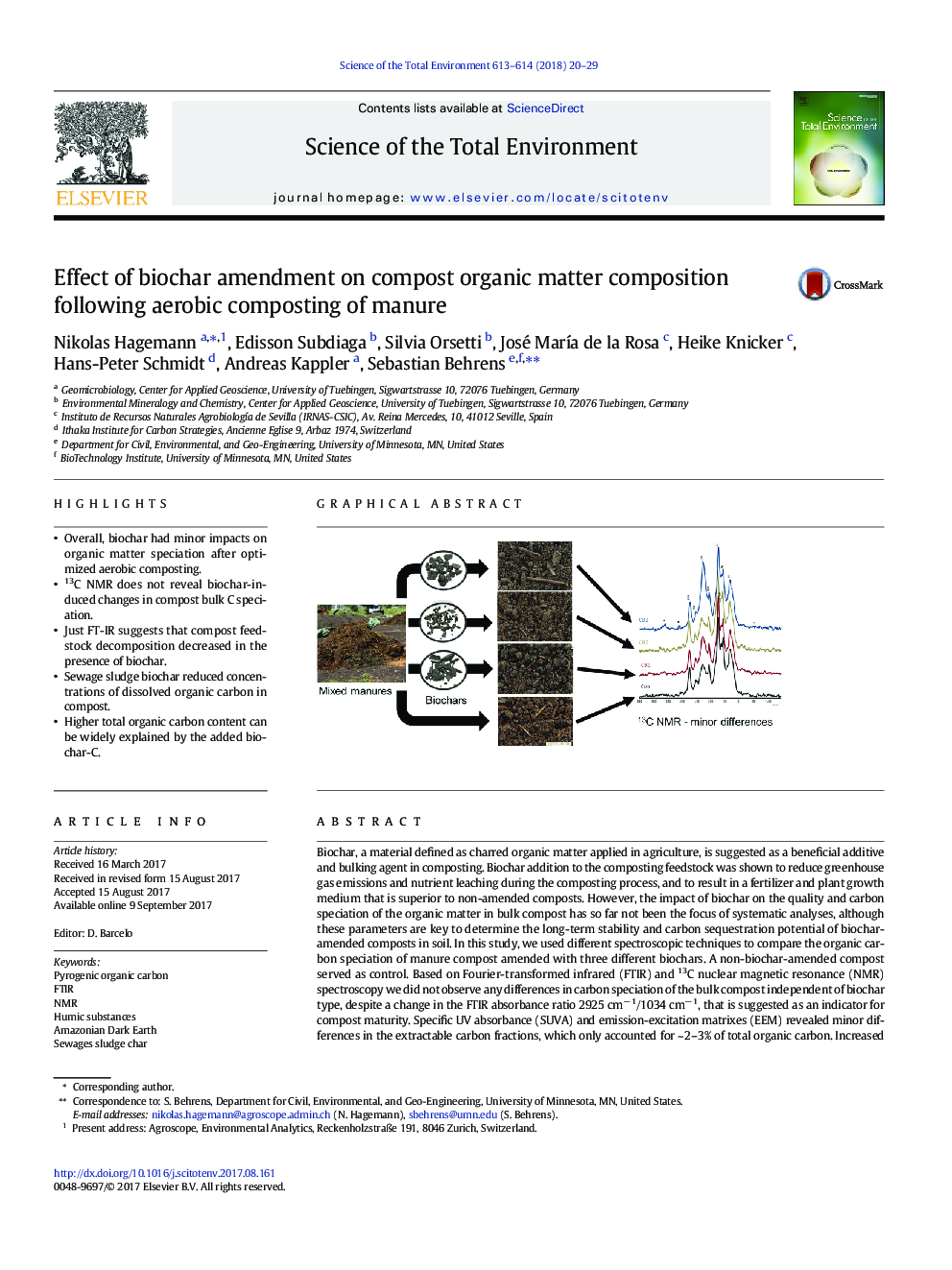| کد مقاله | کد نشریه | سال انتشار | مقاله انگلیسی | نسخه تمام متن |
|---|---|---|---|---|
| 5750062 | 1619690 | 2018 | 10 صفحه PDF | دانلود رایگان |
- Overall, biochar had minor impacts on organic matter speciation after optimized aerobic composting.
- 13C NMR does not reveal biochar-induced changes in compost bulk C speciation.
- Just FT-IR suggests that compost feedstock decomposition decreased in the presence of biochar.
- Sewage sludge biochar reduced concentrations of dissolved organic carbon in compost.
- Higher total organic carbon content can be widely explained by the added biochar-C.
Biochar, a material defined as charred organic matter applied in agriculture, is suggested as a beneficial additive and bulking agent in composting. Biochar addition to the composting feedstock was shown to reduce greenhouse gas emissions and nutrient leaching during the composting process, and to result in a fertilizer and plant growth medium that is superior to non-amended composts. However, the impact of biochar on the quality and carbon speciation of the organic matter in bulk compost has so far not been the focus of systematic analyses, although these parameters are key to determine the long-term stability and carbon sequestration potential of biochar-amended composts in soil. In this study, we used different spectroscopic techniques to compare the organic carbon speciation of manure compost amended with three different biochars. A non-biochar-amended compost served as control. Based on Fourier-transformed infrared (FTIR) and 13C nuclear magnetic resonance (NMR) spectroscopy we did not observe any differences in carbon speciation of the bulk compost independent of biochar type, despite a change in the FTIR absorbance ratio 2925 cmâ 1/1034 cmâ 1, that is suggested as an indicator for compost maturity. Specific UV absorbance (SUVA) and emission-excitation matrixes (EEM) revealed minor differences in the extractable carbon fractions, which only accounted for ~ 2-3% of total organic carbon. Increased total organic carbon content of biochar-amended composts was only due to the addition of biochar-C and not enhanced preservation of compost feedstock-C. Our results suggest that biochars do not alter the carbon speciation in compost organic matter under conditions optimized for aerobic decomposition of compost feedstock. Considering the effects of biochar on compost nutrient retention, mitigation of greenhouse gas emissions and carbon sequestration, biochar addition during aerobic composting of manure might be an attractive strategy to produce a sustainable, slow release fertilizer.
362
Journal: Science of The Total Environment - Volumes 613â614, 1 February 2018, Pages 20-29
